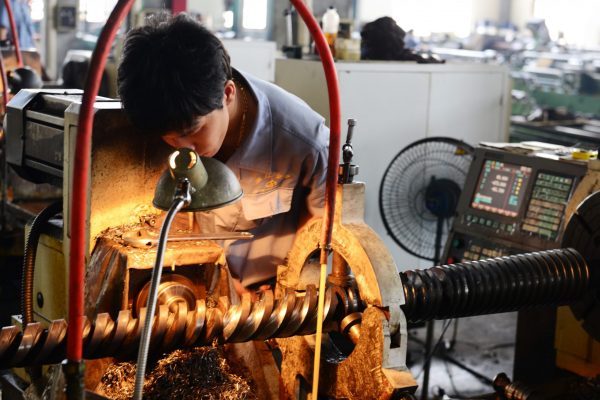This should ring true at least initially, since the Chinese Communist Party (CCP) loathes any sort of political competition even down to the level of individual dissidents and small social groups. Extending beyond politics is the desire to control information — the CCP casts itself as the only legitimate information source for all decision making, including economic.
The setting for economic competition is therefore discouraging. In general, what matters most for large economies is not exports or foreign investment, but fundamental policies at home pertaining to capital, innovation, labour and land. An assessment of these policies in China reveals intense repression.
Despite talk of reform, the mobility of Chinese workers remains restricted for reasons of ‘social stability’, with the effect of reducing competition and productivity in the labour market.
The state also controls most land, a powerful tool to tilt the playing field. Preferred recipients can receive free land while unwanted firms are blocked from land purchases entirely. These are potentially serious export subsidies and barriers to entry respectively. Land is tied to warping competition for the sake of ‘innovation’. It is the government that decides which sectors are highly valued at any time, leaving firms in many other sectors starving for land and capital. This practice long pre-dates the now somewhat infamous ‘Made in China 2025’ policy.
Capital allocation is also anti-competitive. The banking system sees only a few private players, being otherwise dominated by the state. The rise of non-bank financials has been driven primarily by moving assets off state bank books. On the borrower side, state-owned enterprises (SOEs) have privileged access to loans and creditors cannot force them into bankruptcy. Others can be credit-starved.
Nor is the future bright. While October’s 19th Party Congress provides an opportunity for change, labour market reform is likely to maintain its painfully slow pace. There is again talk of sharper land ownership rights for private entities, but we have heard this before.
Stilted corporate competition was tipped at the 2013 CCP plenary meetings, a time wrongly hailed by some as heralding reform. What was actually promised was more private cooperation with the state sector — the exact opposite of what is needed. Since then, the state sector has seen a series of mergers, which is termed ‘reform’ but turns oligopolies into monopolies.
Suppression of economic competition goes hand in hand with suppression of political and information competition to give the Party control over Chinese society. There is a further goal: the giant enterprises created by free land, free capital and enforced consolidation in the home market are to become global champions. Of course, other countries are expected to offer a fair and open competitive environment.
The inconsistency belies President Xi’s support of globalisation. With China now the world’s premier manufacturer, Beijing advocates open trade in most manufactured goods. But service imports are inhibited both indirectly through capital and land subsidies and directly through assured market share for state-owned banks, insurers, telecom firms, media, professional services and so on, which are never allowed to fail.
The hypocrisy extends beyond services and trade. Foreign companies are limited to peripheral investments in energy, petrochemicals, shipping and other ‘sensitive’ industries. Chinese officials still bemoan the unfairness of the United States rejecting China National Off-Shore Oil’s (CNOOC) 2005 bid for Unocal, though an American attempt to buy CNOOC remains inconceivable.
It is not just isolated cases. While China is deliberating whether to create new SOE monopolies, the anti-monopoly law is employed with increasing frequency. It is not being used against SOEs — they are largely exempt. Instead, the biggest targets are what Beijing sees as ‘dangerously competitive’ multinationals.
There is a counter-argument: there’s far more economic competition in China than 40 years ago. Of course this is true, and important. But the same cannot be said in comparison to China 10 or even 15 years ago. Pro-competitive reforms disappeared under Hu Jintao and show no signs of reappearing under Xi Jinping.
The extent of and trend in China’s repression of competition calls for responses. It is now common to invoke ‘reciprocity’ as the appropriate economic response to China. This is vague but, if competition is the guide, reciprocity calls for barring Chinese firms from open competition in some sectors where China does not permit it. The means to do so will vary, as they do in China. And the hope should be that reciprocal suppression causes Beijing to accept more competition. At this point, talking will not do the trick.
Derek Scissors is a Resident Scholar at the American Enterprise Institute and Chief Economist of the China Beige Book.

